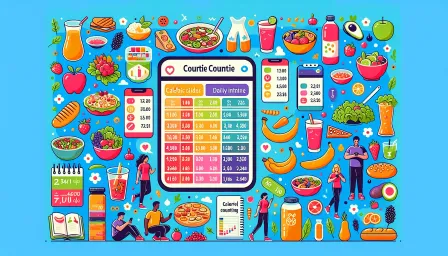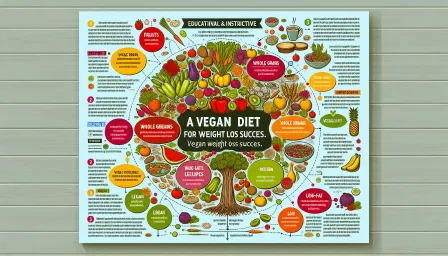Effective Weight Loss Maintenance and Lifestyle Changes for Long-Term Success

Discover effective strategies for weight loss maintenance and lifestyle changes to ensure long-term success. Our comprehensive guide emphasizes sustainable habits and scientifically backed methods.
Achieving weight loss is often a challenging journey, but maintaining that weight loss can be even more demanding. Effective weight loss maintenance requires a combination of healthy lifestyle changes, behavioral strategies, and long-term commitment. In this comprehensive guide, we explore evidence-based approaches to help you sustain weight loss and enjoy a healthier, more fulfilling life.
Understanding Weight Loss Maintenance
Weight loss maintenance involves the ongoing process of keeping off the weight you have lost. Research indicates that many people who lose weight tend to regain it within a few years. Therefore, adopting sustainable lifestyle changes is critical to counteract this tendency.
Key Strategies for Sustaining Weight Loss
Healthy Eating Habits
Healthy eating is the cornerstone of effective weight loss maintenance. Focus on a balanced diet that includes a variety of fruits, vegetables, whole grains, lean proteins, and healthy fats. Here are specific tips:
- Practice portion control to avoid overeating.
- Incorporate high-fiber foods to promote satiety and prevent hunger pangs.
- Avoid sugary drinks and opt for water, herbal teas, or other low-calorie beverages.
- Plan your meals and snacks to ensure you make healthier choices.
Regular Physical Activity
Exercise plays a pivotal role in maintaining weight loss. Studies show that regular physical activity helps to preserve muscle mass and boost metabolism. Consider the following recommendations:
- Aim for at least 150 minutes of moderate-intensity exercise or 75 minutes of high-intensity exercise per week.
- Incorporate a mix of aerobic exercises (such as walking, running, or swimming) and strength training (such as lifting weights or bodyweight exercises).
- Stay active throughout the day by taking breaks to stand, walk, and stretch.
- Find physical activities you enjoy to stay motivated and consistent.
Behavioral Strategies for Long-Term Success
Setting Realistic Goals
Setting achievable and realistic goals is vital for sustaining weight loss. Break down your long-term objective into smaller, manageable milestones. For instance, aim to maintain your current weight for the next three months before setting another specific goal.
Mindful Eating
Mindful eating involves paying attention to your food choices and eating habits. This practice can help you recognize hunger and fullness cues, reduce emotional eating, and enjoy your meals without distractions. Consider these mindful eating tactics:
- Eat slowly and savor every bite.
- Avoid eating in front of the TV or computer.
- Listen to your body's hunger and fullness signals.
- Keep a food diary to track your eating patterns and emotions.
Social Support and Accountability
Having a support system can significantly enhance your ability to maintain weight loss. Share your goals with friends or family members, join a weight loss support group, or work with a health coach or registered dietitian. Accountability partners can provide encouragement, motivation, and constructive feedback.
Overcoming Challenges and Setbacks
Handling Plateaus
Weight loss plateaus are common and should be viewed as part of the journey rather than a failure. When you hit a plateau, consider these strategies:
- Re-evaluate your diet and exercise routine to identify areas for improvement.
- Adjust your caloric intake to match your new weight and activity level.
- Incorporate new workout routines to challenge your body differently.
- Stay patient and persistent; sometimes, small changes can make a significant impact over time.
Managing Stress
Stress can negatively affect your weight by triggering emotional eating and other unfavorable habits. Adopt stress management techniques such as:
- Practicing mindfulness meditation or deep breathing exercises.
- Engaging in physical activities that help reduce stress, such as yoga or tai chi.
- Ensuring adequate sleep by maintaining a regular sleep schedule and creating a restful environment.
- Seeking professional counseling or support when necessary.
Long-Term Lifestyle Changes
Building Sustainable Habits
The key to long-term weight loss maintenance is building habits that are sustainable and enjoyable. Aim to create a lifestyle that supports your health goals without feeling restrictive. Here’s how:
- Focus on gradual changes rather than drastic diets or exercise regimens.
- Celebrate your successes and progress, no matter how small.
- Learn from setbacks and use them as opportunities for growth.
- Stay informed about nutrition and fitness trends to keep your routine fresh and effective.
Creating a Supportive Environment
Surround yourself with an environment that aligns with your weight maintenance goals. This includes:
- Stocking your pantry with healthy, nutritious foods.
- Removing temptations such as sugary snacks and beverages from your home.
- Designating a specific space for exercise and physical activity.
- Fostering positive relationships with people who support your aspirations.
Conclusion
Effective weight loss maintenance is achievable with the right strategies and mindset. By incorporating healthy eating habits, regular physical activity, and behavioral strategies, you can establish a sustainable lifestyle that supports your weight goals. Remember, the journey to long-term success is unique for everyone, and it's important to stay patient and persistent. Embrace the changes as a continuous process, and celebrate your progress along the way.
With dedication and the right approach, you can maintain your weight loss and enjoy a healthier, more fulfilling life.



























